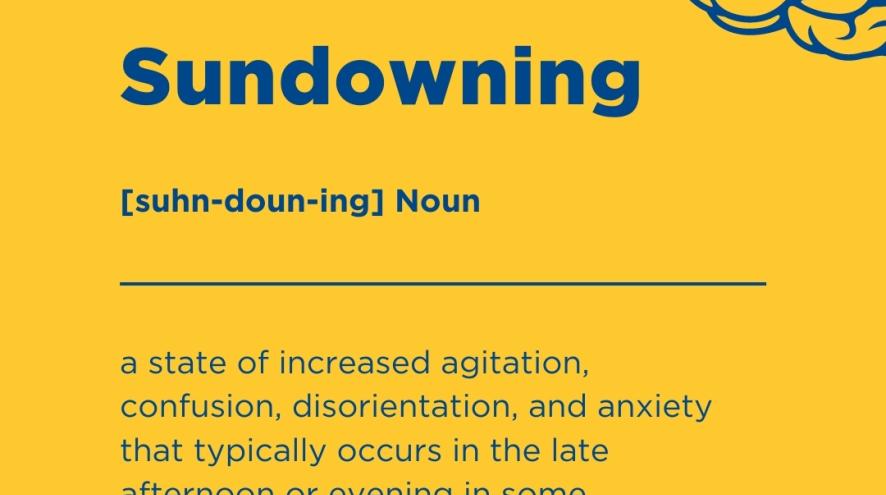Sundowning

It is thought that late day restlessness often nicknamed sundowning can be a difficulty for as many as 66% of people with Alzheimer’s disease or other dementias. It can occur at any stage of the disease but it tends to peak in the middle stages of dementia and lessens as the disease progresses.
Sundowning often affects the person’s quality of life and it can be exhausting for the caregiver. The person living with dementia may become suspicious, upset or disorientated, see or hear things that are not there and believe things that are not true.
Behaviours associated with restlessness
• Becoming demanding or aggressive responses
• Experiencing delusions and hallucinations.
• Pacing or wandering
• Doing impulsive things
• Attempting to leave home
• Having difficulty understanding others
• Having difficulty doing tasks that were done without difficulty earlier in the day
Possible causes
• Being tired at the end of day (can lead to an inability to cope with stress)
• The brain being overworked through the day and releasing more chemicals to do once easy activities
• Low lighting and more shadows (can create confusion and hallucinations, especially with common objects that look different when it is darker)
• Disruption of the Circadian cycle (sleep/wake pattern) because of the dementia (the person cannot distinguish day from night)
• Not as much or no activity in the afternoon compared to the morning (can lead to restlessness later in the day)
Tips and strategies
• Discourage napping throughout day or keep naps short.
• Schedule calming activities when agitation usually occurs.
• Restrict sweets and avoid caffeine and other stimulants at night.
• Provide adequate lighting to help identify objects and people.
• Provide items of comfort like a favourite pillow or blanket.
• Plan and encourage activities during the day.
• Provide reassurance and reminisce as a distraction.
For more strategies and understanding about late day confusion and restlessness, please contact our staff.
